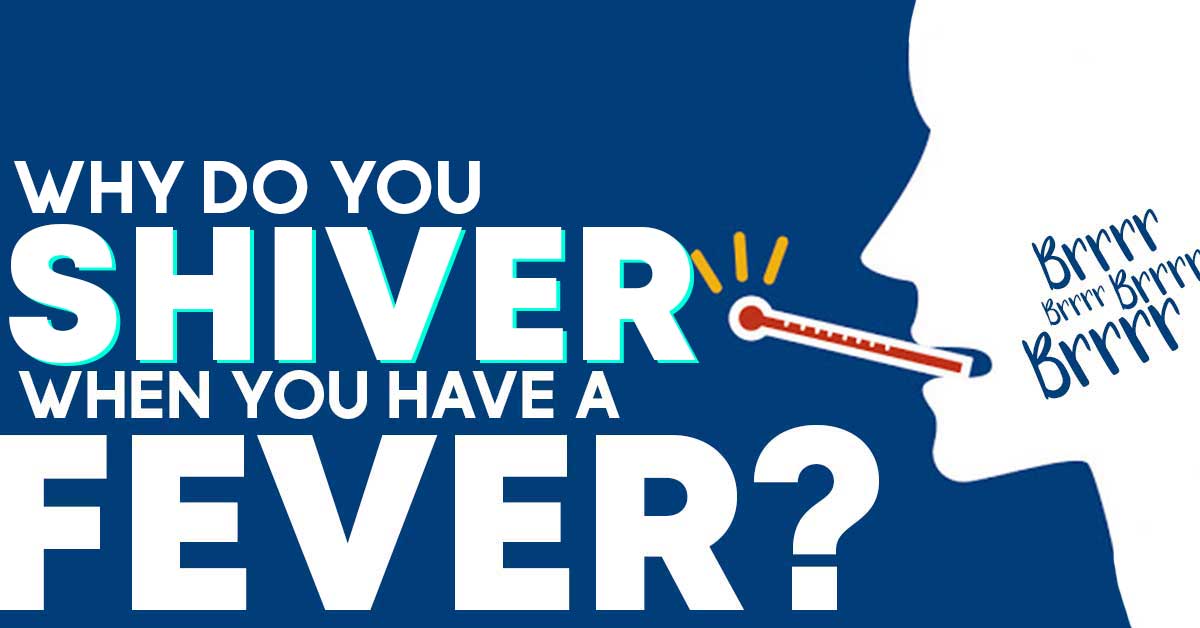When you’re outside on a cold Minnesota day you may start shivering. Ironically, you also start shivering when you are running a fever and your body temperature is over 100 degrees! Talk about polar opposite situations.
So why does being so hot result in you shivering like you are so cold? Your body needs to elevate its temperature as a way to fight off infections. Shivering helps your body temperature rise quickly, just as it would help you warm up on a cold day.
Why does your body get hot to fight a fever?
Your body uses heightened temperature as a way to fight infections. It is commonly said that your body’s normal temperature is 98.6 degrees. For some people, it can be up to a degree lower on a normal day. Try checking your temperature when you’re not sick to see for yourself.
It is difficult for infections and other bacteria to survive when your body temperature goes above 99 degrees. Because of this, the extreme heat you feel in your body is an attempt to ward off the infection.
If you have a fever and do not shiver, it is likely a side effect of heat exhaustion, medication, a recent immunization, or a chronic illness.
Why does shivering help your body heat up faster to fight infection?
By shivering, you are forcing yourself to move rapidly in an uncontrolled fashion – your muscles contract and relax rapidly. All of this little movement creates heat, similar to if you were exercising. This movement is the reason why you shake somewhat when you are shivering.
Shivering is part of the fever-fighting process because it plays a role in raising your body temperature quickly. When you are feeling sick you likely are not energized to move around much. Since your body can not generate excess heat when you are sitting around, shivering helps create that response.
The muscle contracting and relaxing process that happens when you are sick is the same process that takes place when you are feeling cold. Either way, it serves the purpose of helping elevate your body temperature.
The duration of time that you shiver or have a fever will depend on why you are sick. If you have a fever for an extended period of time or have other symptoms, contact your medical provider.


